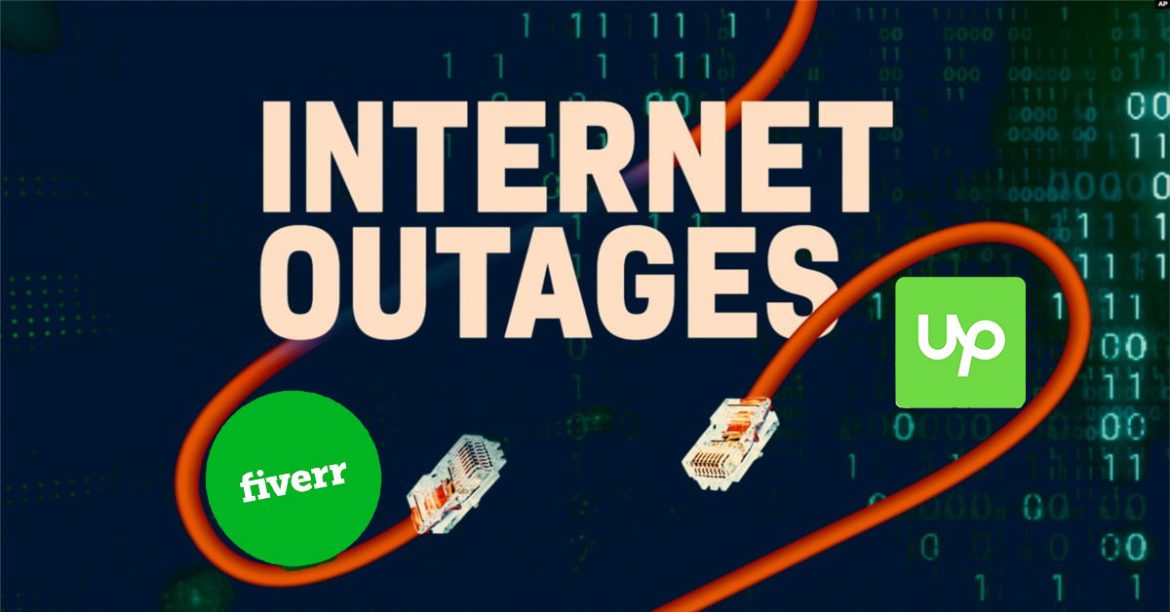In recent days, Pakistan’s freelancing community has faced significant challenges due to repeated internet outages. These disruptions have not only caused substantial financial losses but have also sparked concern over the government’s exploration of a national firewall.
This proposed measure, intended to control and monitor internet activity, has raised alarms about further restrictions on digital freedoms and the potential for even more severe economic repercussions.
Freelancing in Pakistan has become a major contributor to the economy, with thousands of individuals relying on digital platforms to provide services to international clients.

The country’s freelancers, particularly those in the IT, design, and digital marketing sectors, have built a reputation for delivering high-quality work at competitive prices.
However, this thriving sector has been hit hard by the frequent and prolonged internet outages that have plagued the country.
Also Read:
Arshad Nadeem Requests Govt. For ‘Gas, Electricity & University for Women’
The internet outages, often lasting several hours to even days, have left freelancers unable to meet deadlines, communicate with clients, or access critical tools and platforms. As a result, many have faced penalties, lost contracts, and seen their reputations damaged. The financial toll is estimated to be in the millions, with freelancers reporting significant drops in income and, in some cases, complete loss of business.
Government’s Firewall Proposal: A Double-Edged Sword?
Amid these ongoing disruptions, the Pakistani government is exploring the possibility of implementing a national firewall. This proposed system would allow authorities to control and monitor internet traffic within the country, ostensibly to enhance cybersecurity and prevent access to harmful content.
However, many in the freelancing community fear that such a firewall could further restrict internet access, leading to even more outages and slower connection speeds.
Critics argue that the implementation of a national firewall could be disastrous for Pakistan’s digital economy. Freelancers, who rely on uninterrupted and fast internet to compete in the global market, would be at a significant disadvantage. The potential for increased censorship and surveillance has also raised concerns about the erosion of digital rights and freedoms in the country.
The Broader Economic Implications
The freelancing sector is not the only part of the economy that has suffered due to internet outages. E-commerce businesses, online education platforms, and tech startups have also faced disruptions, leading to broader economic losses. Pakistan’s digital economy, which has been growing rapidly in recent years, is at risk of stalling if these issues are not addressed promptly.
The government’s focus on a national firewall, while intended to enhance cybersecurity, may inadvertently stifle innovation and growth in the tech sector. If freelancers and digital entrepreneurs continue to face unreliable internet access, the country could lose its competitive edge in the global digital marketplace.
The Need for a Balanced Approach
To avoid further damage to Pakistan’s freelancing community and the broader digital economy, the government must adopt a balanced approach. Rather than focusing solely on restrictive measures like a national firewall, there should be an emphasis on improving internet infrastructure and ensuring reliable, high-speed access for all users. Investment in cybersecurity measures that do not compromise internet freedom is also essential.
Moreover, the concerns of freelancers and other stakeholders should be taken into account when shaping policies that affect the digital landscape. Ensuring open dialogue and collaboration between the government, industry leaders, and the freelancing community can help create a more supportive environment for the digital economy to thrive.
Share your two cents in the comments below.
Stay tuned to WOW360.
